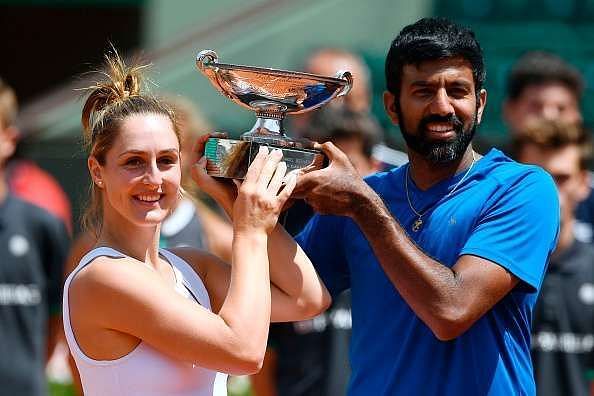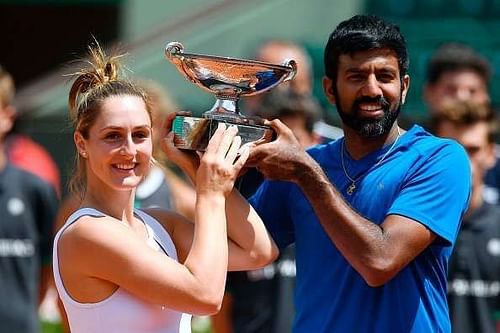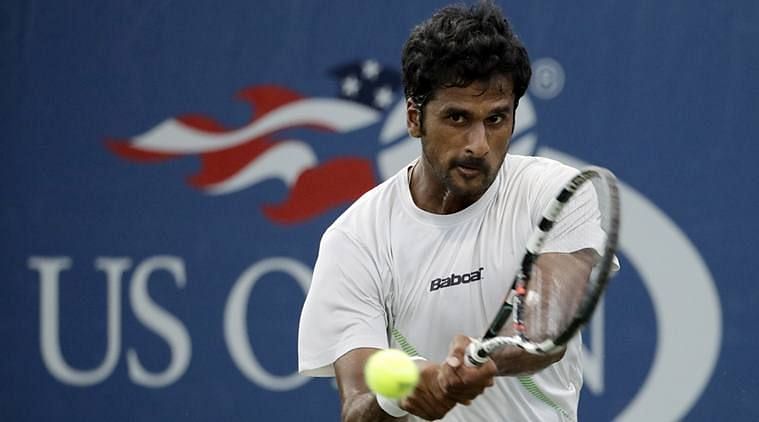
Rohan Bopanna’s exclusion from Arjuna Awards exposes the fallacy of the system

A national sports award of a country is expected to be given on the basis of merit. Coming from a country with a population over a billion, getting selected for it should be as much a matter of pride and prestige, as an inspiration for fellow athletes.
Anything other than that is not only a travesty of justice. It also tarnishes the sanctity of the said award.
With the recommendations for the Arjuna and the Rajiv Gandhi Khel Ratna awards getting released today, the names were met with the usual incredulity as has been the norm in recent times. But nothing was more conspicuous than the absence of the 2017 French Open mixed doubles champion Rohan Bopanna.
For anyone not acquainted with the rules for these awards, the 2017 guidelines as per the Ministry of Youth and Affairs should certainly help to enlighten.
“To be eligible for the award, a sportsperson should have had not only good performance consistently for the previous four years at the international level but also should have shown qualities of leadership, sportsmanship and a sense of discipline. Accordingly, sports achievements for the period 1st January, 2013 to 31.12.2016 will be taken into consideration."
‘good performance consistently for the previous four years'
‘qualities of leadership, sportsmanship and a sense of discipline’
Does Bopanna, one of Indian tennis’ flag-bearers, fall short in every criterion? Is that even plausible?
In the said period, the 37-year-old has amassed seven ATP doubles titles with runner-up appearances in eight others. He climbed to his career-best ranking of No. 3 within this very period of four years on July 22, 2013.
He has made it to the Wimbledon semi-finals twice - in 2013 and 2015 which is a testament to his consistency. Apart from his ATP World Tour and Slam exploits, he has been a key Davis Cupper with most recently leading India to World Group Playoffs over Uzbekistan in April.
On June 8th, Bopanna’s lifelong ambition finally materialized when he lifted the Roland Garros mixed doubles trophy alongside Canada’s Gabriela Dabrowski after saving a couple of match points. It was a long-cherished dream that came true for the Bengaluru native 14 long years after turning professional.
It undoubtedly sent ripples of joy and euphoria through the Indian tennis fraternity. Bopanna was the only Indian to have made it this far at the claycourt Major this year.
An ecstatic All India Tennis Association (AITA) sent out press releases the very next day, affirming its decision to recommend the Coorg-born ace for the prestigious Arjuna Award. AITA acknowledged its past unsuccessful recommendations of Bopanna, calling his selection long ‘overdue’ and sounded confident about his win this time.
“We are quite sure that this victory will definitely get him the Arjuna award which is long overdue, though AITA has recommended his name quite a number of times.”
Even the lapse of the April 28 deadline did not seem to be a barrier because of the gravity of Bopanna’s achievement.
An optimistic AITA Secretary General Hironmoy Chatterjee specifically said: “We will still try to do it today. It can be done.”
The tennis player himself expressed his delight at being ‘nominated’ soon after and wanted to wait and find out if he finally gets the coveted award.
The sequence of events raises very pertinent questions:
Where did it all go wrong for Bopanna? How did his name not end up in the 12-member selection committee’s final list submitted to the Sports Ministry?
And how Bopanna gets overlooked and Saketh Myneni secures a place among the 17 probable Arjuna awardees perhaps remains the biggest mystery of all.

With all due respect to the former Asian Games gold medallist, were his credentials in the preceding years stronger than Bopanna by any means?
A simple Google search would refute any claim that Myneni was more deserving.
Saketh’s most notable accomplishment in the last four years was, of course, partnering Sania Mirza to the mixed doubles gold and Sanam Singh to the men’s doubles silver at the 2014 Asian Games. Yet to grab any title on the main ATP World Tour, he has been crowned champion on the Challenger circuit twice in singles and six times in doubles.
The Davis Cupper peaked at 137 in singles in 2016 that gifted him the India No. 1 position, besides reaching a career-high No. 113 in doubles.
Saketh has served Indian tennis with utmost dedication and that definitely needs to be recognized at some point, but not at the expense of the World No. 21 Bopanna. Even in his annus horribilis, which was 2016, the latter did reach an ATP Masters final as well as of another tournament.
Reiterating what AITA had said earlier, Bopanna’s recommendation is indeed long overdue. Even if his past exclusions from the final list did not warrant any discussion, this time it does, especially after the way it garnered attention post his maiden Grand Slam triumph.
Late inclusion into the elite list is not unprecedented, though, provided the concerned player is worthy enough. It is the prerogative of the Sports Ministry to take the final call.
Rio Olympic performances were instrumental in PV Sindhu, Sakshi Malik, Dipa Karmakar and Jitu Rai’s Khel Ratna selection on August 22, 2016 long after the final door was closed.
It might not be an Olympic year but somewhere inside it does raise faint hope of the Ministry reconsidering Bopanna’s case, if it really wants to. If nothing else, it would at least help to restore some faith in the awards system which has come under attack time and again.